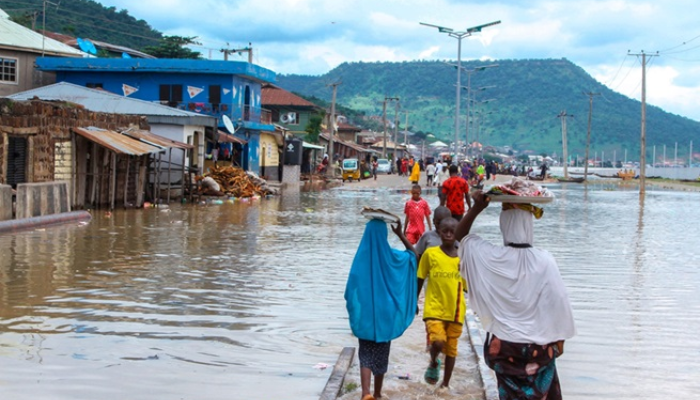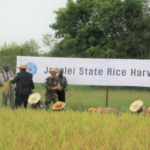The United Nations (UN) Emergency Relief Coordinator, Tom Fletcher, has allocated $5 million from the Central Emergency Response Fund (CERF) to support an anticipatory action initiative for floods in Nigeria. The funding will be released if forecasts predict a major flood emergency.
This was announced by the Humanitarian Coordinator in Nigeria, Mohamed Malick Fall, who emphasised the importance of acting ahead of predictable shocks based on risk analysis.
Read also: $41bn commitment: How Saudi Arabia is expanding energy investments in Africa
Anticipatory action to save lives
Fall stated that early action in crises such as floods is crucial in protecting lives and livelihoods. “Anticipating and acting ahead of crises such as floods saves lives. It also helps to protect peoples’ livelihoods which in turn reduces their vulnerability,” he said.
He further highlighted that in a global environment where humanitarian funding is declining, proactive measures can help mitigate the worst impacts of emergencies and reduce overall response costs.
Collaboration with government agencies
The CERF funding will complement ongoing government efforts through the anticipatory action taskforce. The taskforce includes key agencies such as the Nigerian Meteorological Agency (NiMET), the Nigeria Hydrological Services Agency, and the National Emergency Management Agency. These agencies operate under the Office of the Vice-President, in collaboration with the UN Office for the Coordination of Humanitarian Affairs (OCHA).
OCHA, which manages the CERF and Country-Based Pooled Funds (CBPFs) like the Nigerian Humanitarian Fund (NHF), leads anticipatory action globally. It supports millions of people by addressing hazards such as floods, droughts, storms, and cholera.
Read also: $3m partnership to enhance Arab development portal for sustainable growth
Previous humanitarian interventions
In October 2024, CERF allocated $5 million to scale up flood response efforts in Borno, Bauchi, and Sokoto states. This funding supported relief efforts after floods displaced approximately 400,000 people in Borno State, destroyed thousands of hectares of cropland, and impacted livelihoods ahead of harvests.
The CERF funds were supplemented by a $6 million allocation from the NHF, reinforcing humanitarian assistance in affected regions.
Flood Risk and Seasonal PredictionsAccording to NiMET’s 2025 Seasonal Climate Prediction forecast, the rainy season in northern states, including Bauchi, Borno, Jigawa, Kano, Katsina, Sokoto, Yobe, and Zamfara, is expected to begin between early June and July 2025. This period coincides with the lean season, a time when food insecurity and malnutrition levels increase alongside flooding and disease outbreaks such as cholera.
Timely assistance is essential to mitigate the effects of these hazards and provide necessary support to vulnerable populations.
Read also: $100m pandemic fund initiative strengthens health security in Greater Virunga Landscape
Funding gap for anticipatory action
Nigeria’s 2025 Humanitarian Needs and Response Plan (HNRP) has incorporated a risk-informed approach, allocating 5 per cent ($45 million) of its total $910 million funding requirements to anticipatory action. The CERF contribution represents only 11 per cent of this requirement.
More funding is urgently needed to scale up anticipatory action and strengthen disaster preparedness efforts in Nigeria.
The UN continues to call on international partners to support these proactive initiatives, ensuring that communities at risk of floods receive timely and effective assistance before crises escalate.










